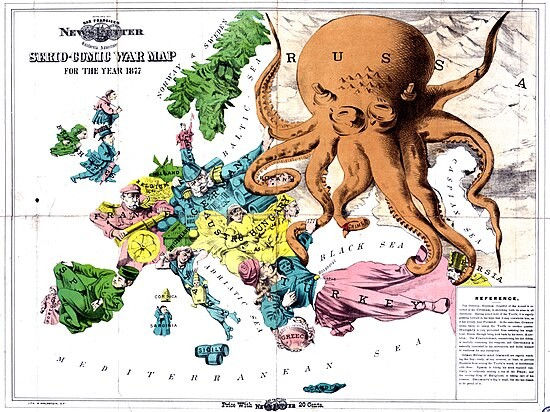When the brother of Christ wanted to kill the emperor of China
- Pablo Díaz Gayoso

- Mar 3, 2025
- 4 min read
Updated: Mar 24, 2025
Although the title sounds like the plot of a bad action movie from the 1980s, the truth is that the subject of this article is far from entertainment. If we were to classify the great armed conflicts according to their degree of ignorance in the West, the Taiping rebellion would take the gold, silver and bronze. Whether because it took place in China, a distant and unknown giant, or because it was a civil confrontation and not between states, the truth is that, almost 200 years later, almost no one remembers one of the bloodiest civil wars in world history. This conflict broke out in China in 1850, at the same time that European imperialism, driven by the industrial revolutions and the desire to dominate every inch of land on the planet, launched itself into colonial conquest.
From opponent to brother of Christ
The events begin when Hong Xiuquan, a humble farmer belonging to the Hakka (Han) ethnic group, wanted to climb the social ladder and decided to take the competitive examination. Competitive examinations in imperial China were the oldest system for selecting officials in the world. This system, based on meritocracy, influenced the rest of the world to adapt the forms of access to the civil service to their own realities. As many people who take competitive examinations know, the entrance examinations are quite complex and require extensive study of the syllabus, and in China it was no different. It required the ability to reproduce the original texts from memory, an ability that Hong Xiuquan was never able to acquire. During his period of study, he had contact with Christian missionaries and became acquainted with the religion. In 1837, after several unsuccessful attempts to take the competitive examinations, Hong Xiuquan suffered a nervous breakdown that led to several hallucinations. He later described that in these hallucinations he went to Heaven and there he met God and Jesus Christ, whose son and brother he was respectively. They entrusted him to return to Earth with the divine mission to purge all of China of the Manchu influence, an ethnic group of the reigning Qing dynasty, and to establish a Heavenly Kingdom under the reign of the Han.
After a decade of preaching and a series of military humiliations against the European powers, Hong Xiuquan managed to lead a sectarian rebellion against the emperor in 1850. This uprising took place in the region of Guangxi, adjacent to Hong Kong, Macao and bordering Vietnam. What began as a focused rebellion, with about 10,000 fighters, which did not arouse Beijing's interest, quickly came to control a large part of southern China.

The Not-so-Pacific Kingdom of Heaven
Hong established a theocratic absolute monarchy, where the official religion was an unorthodox syncretism of Protestant Christianity with Hong's own ideas. This new “state”, which lacked international recognition, lasted from 1851 to 1864. Under Hong's authority, a veritable reign of terror was implemented, where people belonging to the Manchu ethnic group were massacred and sites of other religions such as Buddhism were destroyed.
The political system was composed of what we can consider a head of state, the King of Heaven, who held Hong until his death, and rulers called kings and princes, according to their rank. The main rulers were the Kings of the Four Cardinal Directions: North, South, East and West, the King of the Flank and the Shield King. The next level of importance in their peculiar bureaucracy were the Princes, who were military commanders.

In terms of public policy, several reforms were introduced that marked profound differences with the Qing dynasty system. Regarding access to public service, the study of Confucian texts was replaced by the study of the Bible. Private property was abolished and all land became the domain of the Kingdom. The solar calendar was changed to the traditional lunar calendar. Several “advances” were made in gender equality, such as the participation of women in the army or in public service as civil servants; however, they were strictly separated from men, including cohabitation and marriage (until 1855). Likewise, all activities related to opium, gambling, tobacco, alcohol, polygamy, slavery or prostitution were prohibited under penalty of death.
While the war lasts...
The end of Hong's Kingdom of Heaven was marked by a strategic error of catastrophic consequences. The existence of the Kingdom was, shall we say, convenient for the Western powers. Prolonged instability in China weakened Beijing's authority, which made it easier to dominate the now global superpower. For this reason, throughout the conflict the European powers remained close to neutrality and let the conflict evolve at the will of the Chinese actors involved.
All that changed with the turn of the decade. In 1861 when a confident Hong decided to launch an attack on Shanghai, a key port for Western interests (France, the British Empire and the United States). Despite an initial rebel victory, the other forces soon joined forces to wipe out the Kingdom of Heaven.

Hong's outcome was death by consumption of poisonous plants, which is blamed for his suicide when the capital of the Kingdom was surrounded and military defeat was imminent. The war continued briefly at the hands of fanatical radical factions. However, the post-war period was even worse than the war as the emperor's forces launched campaigns that consisted of the systematic massacre of the Hakka ethnic group, similar to what Hong did against the Manchus.
The death toll of the war and post-war period, which lasted more than 14 years, is difficult to estimate, but figures range from 20 to 30 million conflict-related casualties. Consequently, the Taiping rebellion that sought to create Heaven on Earth resulted in the bloodiest civil war in the history of mankind; and it rivals the world wars in terms of the highest casualty estimates.










Comments